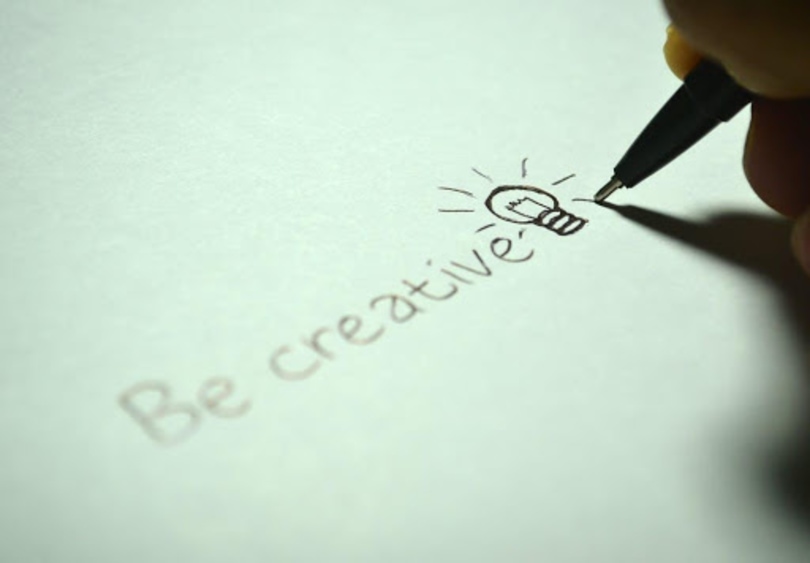In the past, only famous people like musicians, actors, athletes, and CEOs had personal brands. Today, anyone who’s willing to invest some time and effort to become popular in their niche can become a leader with a personal brand. A brand is something that separates you from your competitors. It can be a reputation, symbol, emotion, or tone. No one rule always applies. However, brands are not just big names like McDonald’s, Apple, or Coca-Cola. You can also transform yourself into a brand. Do people know you for graphic design, copywriting, or taking amazing photos? Whatever you are excellent at, you can always build a brand around that. After all, personal branding is all about presenting yourself as a valuable brand. It’s the one thing that differentiates you from others in your niche.
Your Personal Brand Matters
A lot of people search for you on Google. In fact, the majority of employers today won’t hire candidates who don’t have an online presence. Having a social media profile is not enough. You need to ensure that it reflects your personal brand. After all, the majority of business owners will hire you due to your strong personal brand and positive online presence. That’s why it’s important to manage your reputation through personal branding. You cannot separate your business brand from your personal brand. If you’ve been thinking of doing this, you may have to evaluate it. A study conducted by Weber found that 45 percent of an organization’s reputation relies on the CEO’s reputation. Close to 70 percent of respondents said that the reputation of the CEO played a critical role in attracting talent to the enterprise and encouraging them to stay.
A Strong Personal Brand Will Help You Promote Yourself
When you have a personal brand, it’s easy for you to get interviews, jobs, promotions, partnerships, and engagements. In short, your branding acts as a path to build your success. At first, it might seem like a lot of work. You’ll be required to build and optimize profiles. You’ll also have to create quality content about you and your work for visibility and outreach purposes. You’ll also have to set clear goals and come up with a brand strategy. After setting all these up and establishing a strong foundation, the entire process will become manageable since you’ll have a clear path to follow. Regardless of your professional standing or industry, having a definite and distinct personal brand will help you get new opportunities that will help you advance your career.
It Signifies a Good Reputation
Personal online reputation management is important. Your personal brand helps people figure out why they should choose you. It helps in stimulating and encouraging you to succeed. Creating a personal brand helps you feel relaxed as you work. It also helps in building honest and clear schemes that boost trustworthiness. The majority of people are assured when they know what you are capable of. And they’ll feel relaxed when you handle things for them. When people trust in you, handing out your business card won’t be a problem.

Build trust
Branding will aid in the construction of your vision as a skilled innovator in your specialty. Personal branding can help your marketing efforts and enables you to establish an everlasting impression of your uniqueness. You’ll find that a high reputation and recognition go hand in hand. People will know you as an expert if you are easily discoverable. A personal brand will sway you to a specific industry where people focus on your credibility.
Boosts Confidence
You can build your confidence while setting up your brand. Your assertiveness will be the result of competence and positive beginnings that you can share with other people. You’ll be lifting your self-confidence when you have something great to offer. Personal branding will help you showcase your strengths and provide a clear path on where you’ll use them.
Securing Your Legitimacy
A personal brand is the result of expertise, purposefulness, values, and objectives. These are the products of intention and achievement. It’s not easy for someone with a personal brand to make a bogus character or voice that isn’t him or her. Branding builds your legitimacy and helps you accomplish things without much difficulty in life. You can focus on work while improving quality. As a result, your competence will bring you fulfillment. Legitimacy helps in minimizing your flaws and improving your personal branding. Personal branding also helps in developing credence, reliance, and integrity. Building your brand is not only valuable but also essential.

Building your Personal Brand
Building your personal brand can be overwhelming. However, here are a few key steps that will ease your work during this process:
Analyze your search results
When someone searches you on Google, they must see a positive and active online presence that showcases your qualifications and skills. In short, you need to look the part. However, you won’t know what’s wrong until you figure out where you stand in your search results. That’s why you need to Google yourself first and identify the results that can easily harm your reputation. What’s the first thing that shows when you search yourself? Is it a random tweet? Or a short article that you wrote in college? While these search results are not bad, they are not relevant to your career. And this can harm your online brand.Cleanup your search results
After seeing your search results, you can start eliminating those that are not associated with your name or nature of work. Start with the content on your social media pages. Since you can access the backend of your profiles, you can delete videos, images, and comments that do not boost your personal brand. If you spotted any problems on your site, you can fix them too. The most critical thing is getting rid of anything that doesn’t go hand in hand with the vision of your personal brand. Some of the posts that you should delete include: • Unprofessional behavior • Drinking • Sexually explicit behavior • Drug abuse • Unprofessional communication style • Views related to religion, politics, race, and gender • Criminal behavior • Violence • BullyingDefine your personal branding
After cleaning up your images, you’ll need time to think about your personal brand’s vision. You’ll need to identify the elements that make you who you are. To have an easy time, here are some of the questions that you should ask yourself: • Who am I? • What do I do? • What motivates me? • What distinguishes me from the crowd? • How can I help my audience? • How do I envision my brand? • What makes me different from my competitors? • How do others describe me? • What do you want to achieve with your brand? Are you having a hard time answering these questions? You can think of seeking help from your family, friends, or colleagues to get some insights. When you answer these questions, you’ll become aware of your personality aspects. And this will allow you to craft your personal brand statement. It shows the value that you can give to clients and proof that you can do it. You need to keep your personal brand statement brief by focusing on a few key points that you need to emphasize.Build Your Brand Identity
By checking out people with successful websites and strong personal brands, you’ll notice that the design of their site is on point. This is because close to 90 percent of online searches make their first impression on the design of a website. Plus, it only takes a few seconds to make this decision. Apart from that, a well-designed website will help you make your brand recognizable regardless of the platform you choose to post or interact on. Professional design is the one thing that separates experts from amateurs. Start by creating your logo. If you can’t do this, consider hiring a graphic designer to create a personalized logo. You can also use resources such as Logo Nerds and 99 Designs to create your logo online. Once you’ve done this, you can hire a logo designer to help in redesigning your website.
Optimize Your Online Presence
Cleaning up your social media profiles is not enough. You need to ensure that you create a positive impression when people search you on Google. You probably have an online profile on several platforms that are relevant to your audience. You’ll need to create profiles on these platforms to showcase your work and results: • Your website • Vimeo • YouTube • Instagram • Tumblr • Pinterest Depending on what you offer, you can make profiles on Twitter/X, LinkedIn, Medium, Quora, Pinterest, TikTok and Slide Share to name a few. You can also have multiple profiles on other platforms that are exclusive to your industry. However, take note that you need not have an account on all these platforms. Otherwise, you can end up spreading yourself too thin. And this will make it harder for you to update all of them frequently. Failure to update them will harm your personal brand more than not having a profile. To optimize your website, social media, and blog, you’ll need to ensure that: • You use your real name on all profiles and platforms • You have a professional photo • You fill out all the profiles • You include keywords and focus on key industry skills • You include your location • You quantify accomplishments whenever you can Keep in mind that it takes time for search engines like Google to index profiles on social media. This can frustrate you in the beginning since you only take note of incremental changes. As long as you have a concrete SEO strategy, you can ensure that your profiles rank on top and you are regularly engaged. You also need to remember that brand is much more than an online persona. You have to take good care of your offline reputation to boost your online reputation.




